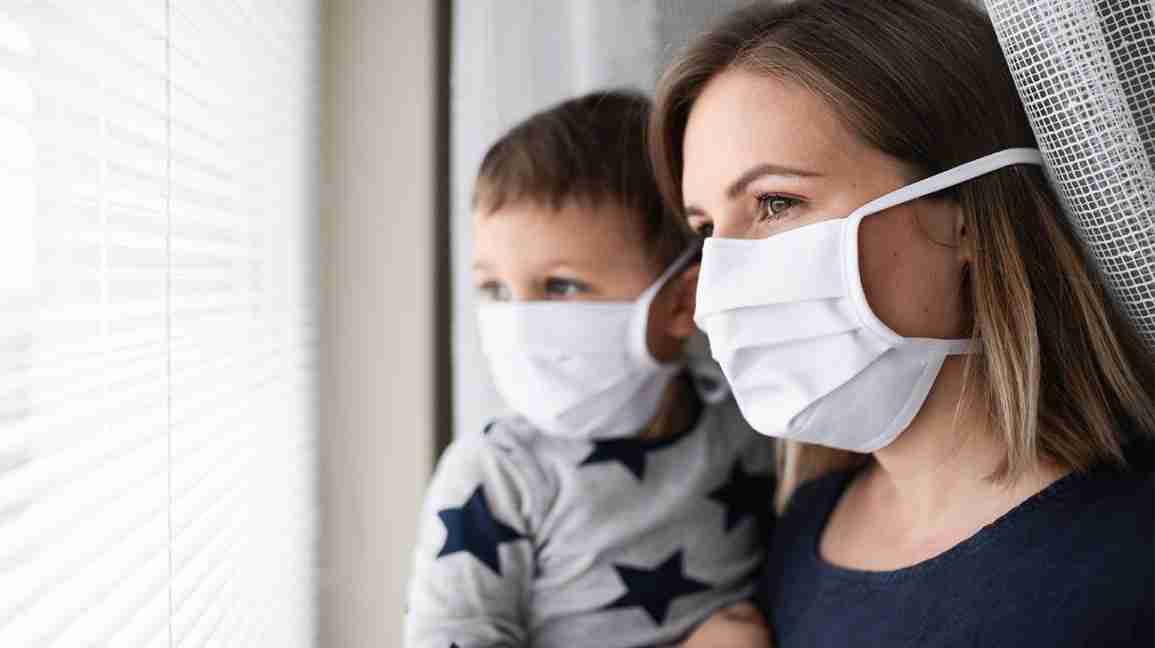
- Experts are looking at mouthwash to see if it can help stop the spread of COVID-19.
- In labs, mouthwash may help kill the new coronavirus.
- Other experts disagree and point out that the coronavirus can quickly multiply in the throat even after using mouthwash.
- Masks and physical distancing are still the best ways to prevent spreading or developing COVID-19.
Frequent handwashing, following social or physical distancing rules, and using face coverings in mass transportation and shops are still some of the best ways to protect against the new coronavirus.
However, a new study finds that ingredients in commercially available mouthwash may damage the virus that causes COVID-19 in a way that makes it harmless. The report, recently published in the journal Function, suggests that there’s an “urgent need” to test the effectiveness of this approach in clinical trials.
Previous
“Information has emerged highlighting how important the throat and salivary glands are as a site of virus replication in early disease and also in people who don’t have symptoms and how they seem to be involved in transmission of infection,” lead author Valerie O’Donnell, PhD, director, division of infection and immunity and co-director of the Systems Immunity Research Institute at Cardiff University, told Healthcare Website. “It seemed worthwhile to check if there was any potential for direct antiviral targeting of virus in the throat via damaging the membrane.”
According to researchers, the virus strain that causes COVID-19, called SARS-CoV-2, is an enveloped virus with a fatty (lipid) membrane.
This envelope comes from the infected cell, or host, in a process called “budding off,” according to the
“We found that there is evidence from other people’s research that enveloped viruses like influenza, herpes simplex, and other coronaviruses are sensitive to common ingredients in mouthwash, but this evidence is from test-tube experiments — not from studies on viruses in the mouth, where their response may be different, and where little work has been done,” explained O’Donnell.
However, she cautioned, “It’s important to note that studies haven’t been done on this coronavirus because it’s new.”
SARS-CoV-2 infection is believed to happen through
“Dampening transmission by any means could be a preventative measure, and we don’t have any ways to do this currently,” said O’Donnell.
“CDC have recommendations for dentists where patients use mouthwash before procedures for preventing transmission of respiratory disease already,” she continued. But she added that this is based on theoretical benefit, not benefit proven through clinical trials, which haven’t been conducted yet.
O’Donnell concluded, “This is where research needs to be done, first to find out if these ingredients can inactivate this virus in the throat, and then if they can, whether this could reduce transmission.”
But how this happens is still not fully understood.
Recent research finds that interfering with the bacteria in your mouth may affect your cardiovascular health. The study examined whether the “nitrate-reducing activity” of bacteria in our mouths is a key trigger for PEH.
Scientists used a randomized, double-blind, and crossover study design, which means neither the testers nor the participants knew who received mouthwash or a placebo.
Findings suggest that the participants who used mouthwash experienced significantly higher blood pressure after exercising than the placebo group, reducing an important benefit of cardiovascular exercise.
Of course, this doesn’t mean that mouthwash is bad for you or doesn’t provide important benefits.
“There is potential for mouthwash with alcohol to reduce, maybe slightly, short-term spread of virus to close household contacts. The alcohol might kill virus in the mouth surfaces temporarily — so might a shot of whiskey, rum, or tequila,” said Eric Bortz, PhD, assistant professor of biology, University of Alaska Anchorage.
But Bortz, who is currently researching the genome sequencing of COVID-19, pointed out, “If someone is actively infected, the infected cells in the throat will soon produce more virus.”
He added that the upper and lower respiratory tissues are very often infected and can produce transmissible virus. “So for most people with coronavirus, mouthwash will be of limited value in preventing spread of COVID19.”
“Face coverings [masks], social distancing, and limiting contact are the best public health measures. But good oral hygiene is good for health, so it’s good to maintain it [mouthwash use] anyway!” Bortz advised.
Bortz agreed that anything that kills the virus in a test tube might kill the virus in the mouth, “But that doesn’t mean you should use it as a first line of defense. For example, bleach kills virus — but don’t drink it or wash your mouth with it because it might kill you too!”
“The coronavirus survives inside of cells mainly in the respiratory tract, not just the mouth,” he emphasized.
Mouthwash won’t cure anyone of COVID-19, concluded Bortz, “or prevent infection by coronavirus.” But he remarked that good oral hygiene is a part of good health: “So for adults non-alcohol or alcohol-based mouthwashes are great, but for children, no alcohol.”
Mouthwash company Listerine has urged consumers not to use mouthwash to fight COVID-19 during the pandemic. “LISTERINE mouth rinse has not been tested against the coronavirus and is not intended to prevent or treat COVID-19,” the company said in a statement.
Research finds that mouthwash ingredients have a potential role in the fight against COVID-19. They say that commercially available mouthwash could damage the new coronavirus in such a way to render it harmless.
Some scientists emphasize that since the throat is a major area of infection for COVID-19, then strategies, like mouthwash, that reduce the concentration of virus in mucous membranes could contribute to reduced transmission risk.
Other experts disagree and point out that the coronavirus can quickly multiply in the throat even after using mouthwash, and that masks and social or physical distancing are still the best ways to prevent spreading or developing the infection.

